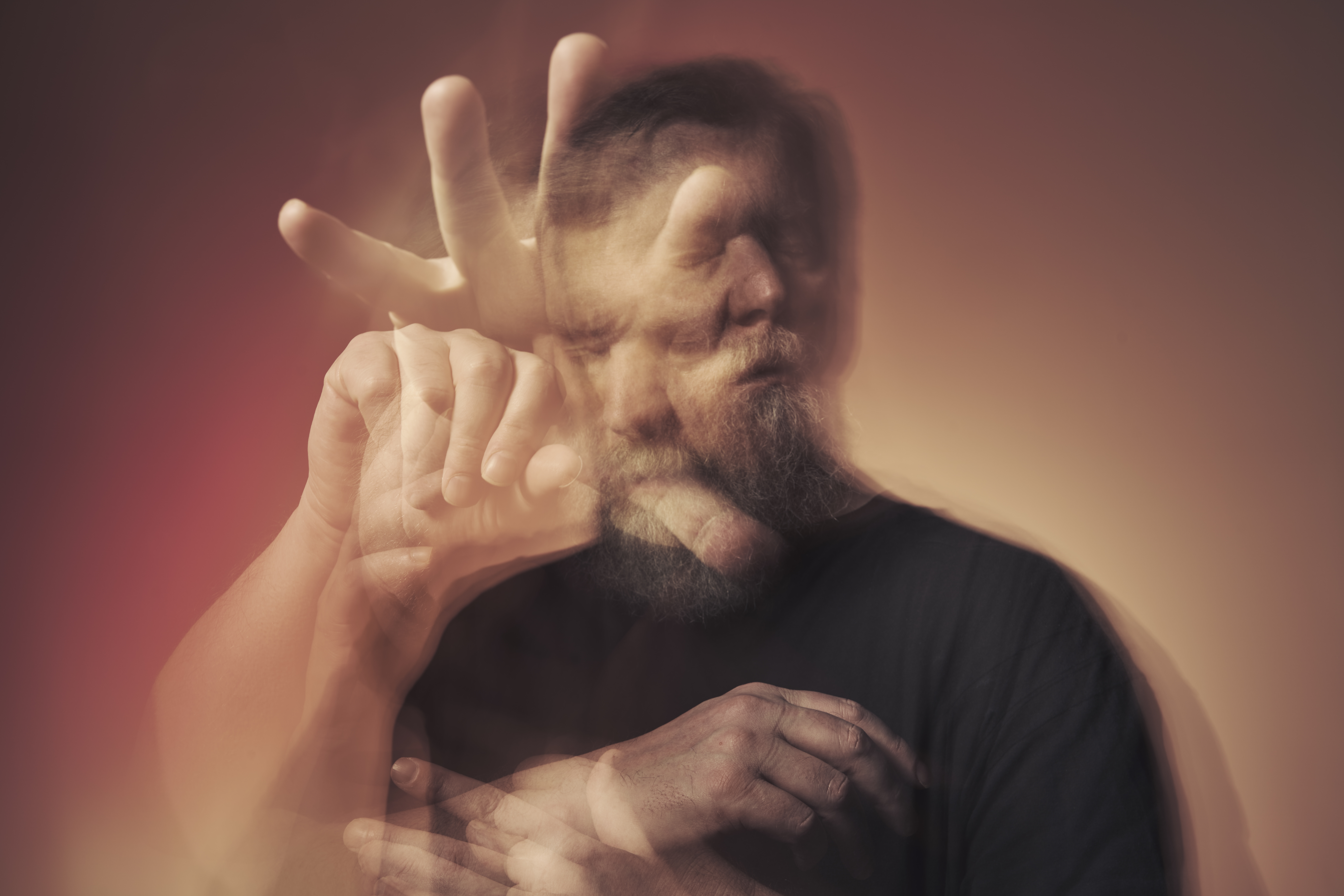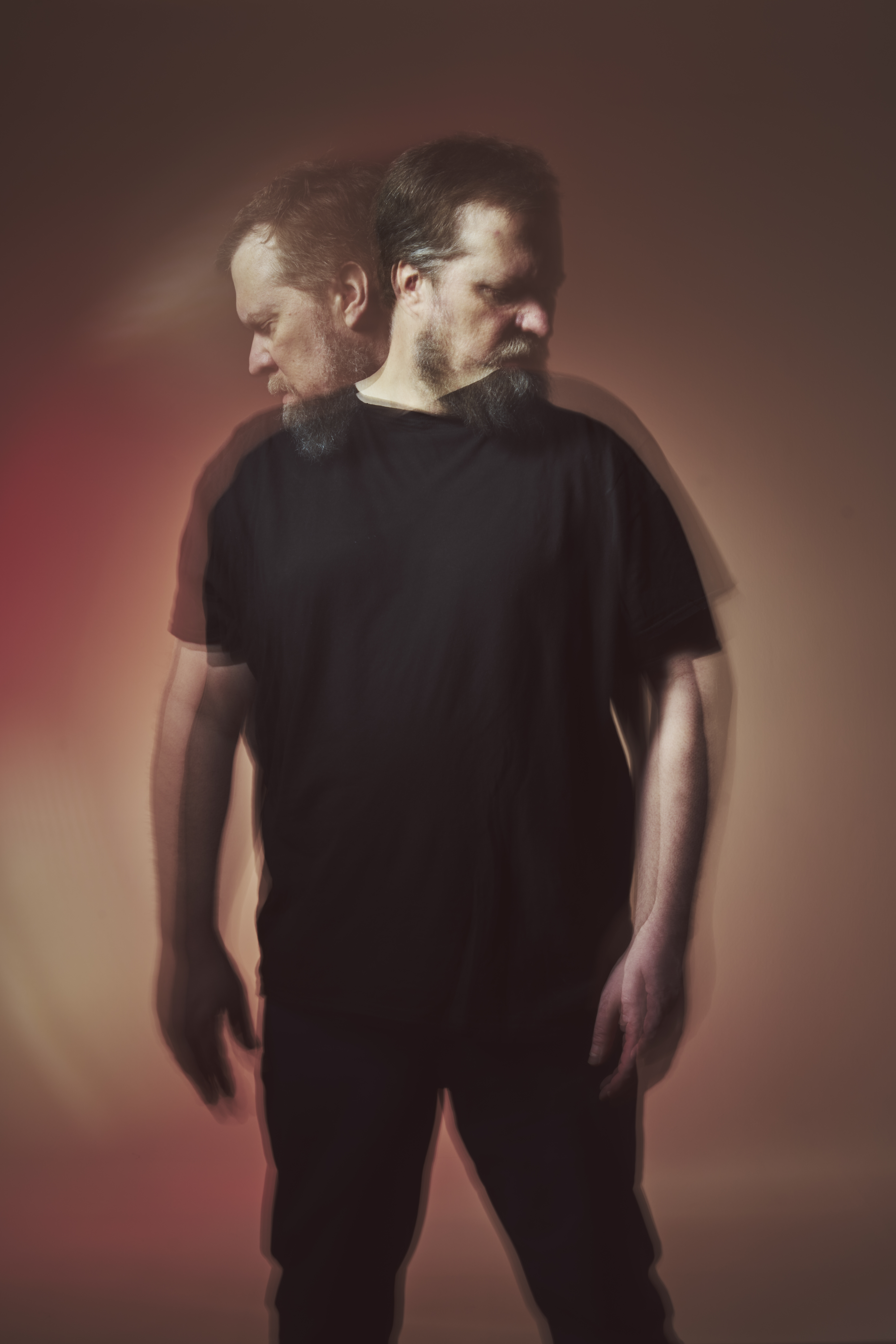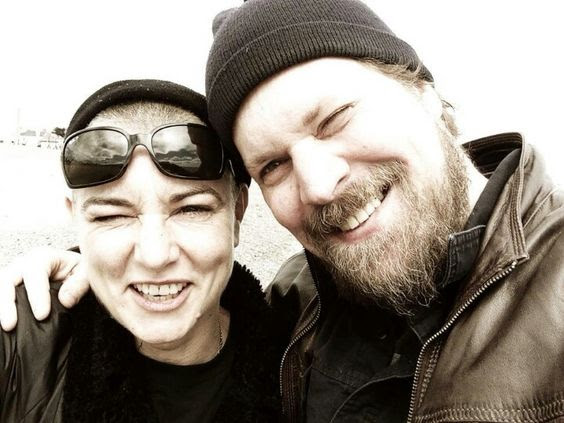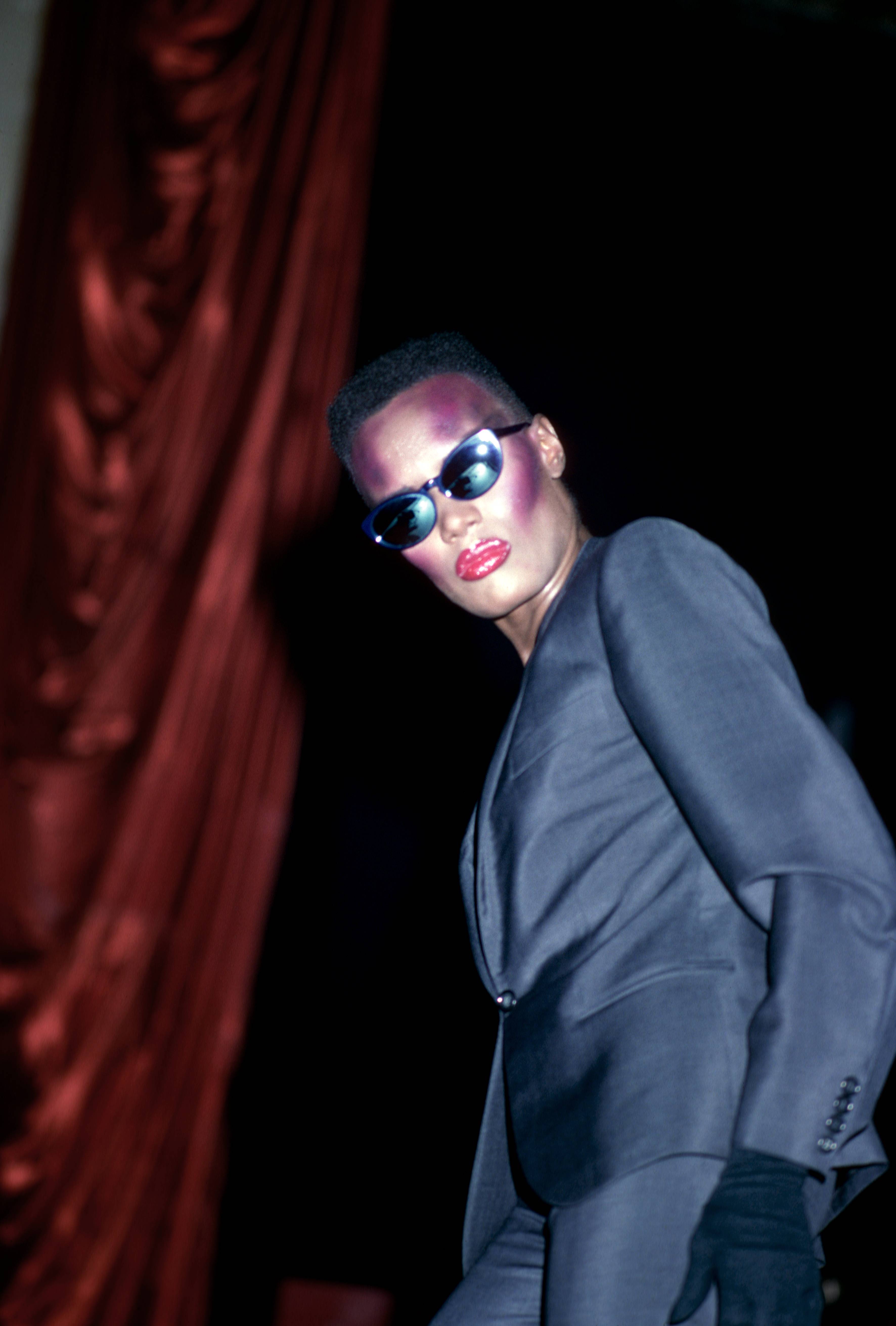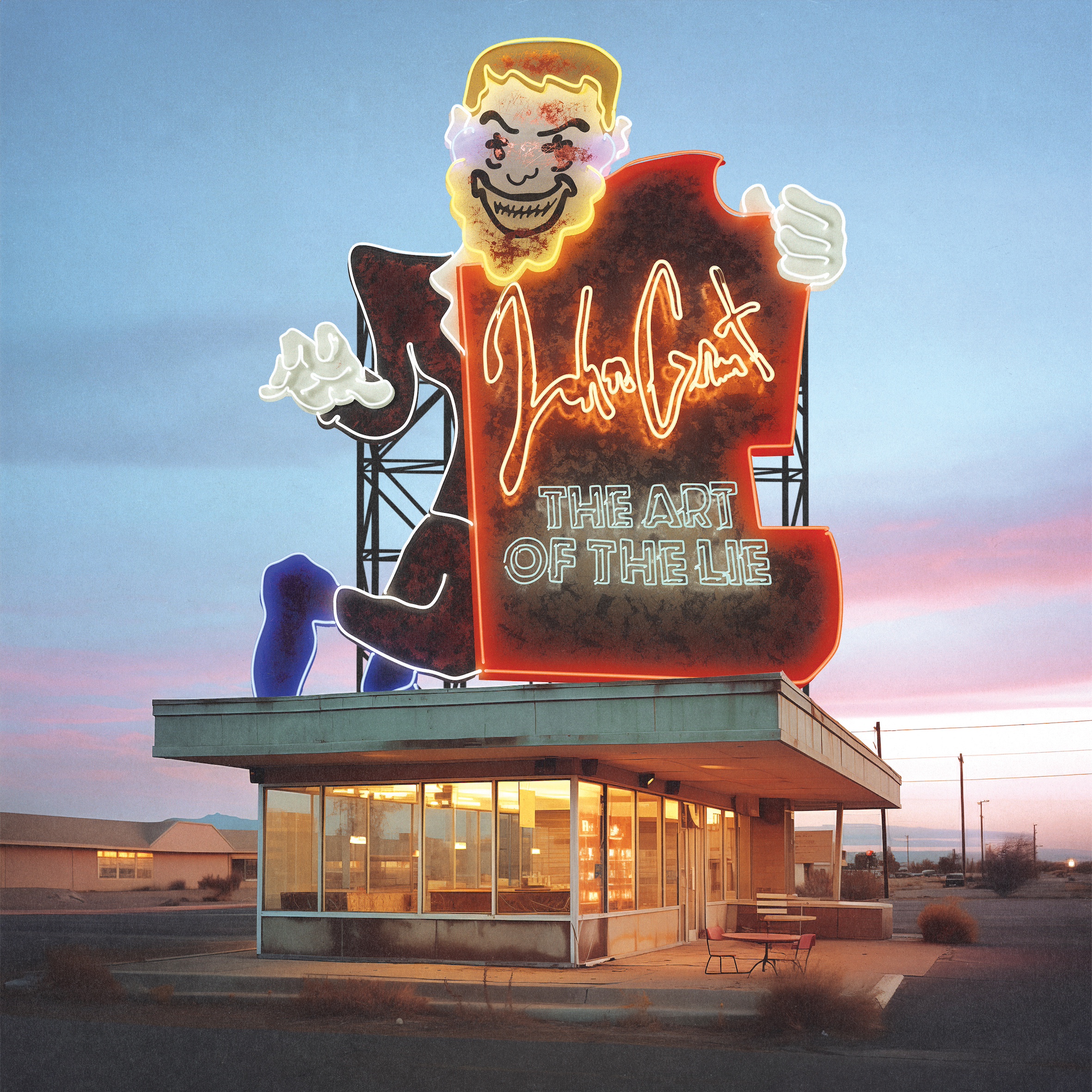His songs veer from serene balladry to angular electronica, all knitted together by his honeyed baritone. His unflin-ching lyrics can be poignant or playful, raging or loving.
When we meet at his label’s London HQ, he takes a seat at one end of a long sofa emblazoned with a Union Flag . . . entirely appropriate for an Anglophile American.
Coffee in hand, he’s having a welcome break from the laborious task of signing copies of his sixth solo album.
The Art Of The Lie is his most all-encompassing song cycle yet, the one he’s been striving for in the years since his old band The Czars split up in the mid-Noughties.
Opening track, All That School For Nothing, summons his playful side and was originally written by Grant for Blondie.
He says: “John Congleton was producing their album and he had also worked on my third record (Grey Tickles, Black Pressure).
“He asked if I would like to submit something because they were accepting ideas.
“So I sent the demo incarnation of All That School For Nothing. I thought Debbie Harry would look really cool singing the line, ‘You’re not honest, you’re just a p*k, the personification of a selfie stick.’
“When Blondie didn’t respond, I really John Grant-ed it up with personal remarks about how somebody eats their food — ‘I’d rather watch a seagull swallow a rabbit.’”
Another song, the funky Meek AF (standing for an ironic “meek as f*k”), comes drenched in the old school synths he loves while taking furious aim at certain sections of American society for stirring up extreme intolerance.
Its mention prompts Grant to reflect on the trailblazing singers who have done the exact opposite by breaking down barriers around sexuality and identity.
For a boy raised in the Mid-West by a strict religious family who told him he would go to hell for being gay, these are the artists who made his career possible.
‘They were so brave’
He singles out three Brits, Holly Johnson (Frankie Goes To Hollywood), Boy George (Culture Club) and a pop legend who has been supportive of both him and his music, Elton John.
“All the stuff they went through is the reason I’m here,” affirms Grant. “They were so brave.”
“Think about their posture, just sitting there and talking as if they belong — because they do! But it wasn’t like that in the States.”
Of Elton, he says: “I saw him recently and I was telling him about my brothers who were extremely homophobic in the Seventies, though they’re not now.
“They never said a single word against Elton back then. They just loved him and his music.
“He’s a trailblazer in the truest sense of the word and the more I get to know him, the more impressed I am by him. He’s so supportive of so many up-and-coming artists. I feel a kinship with him in that regard, too.”
But there is a big difference between Grant and his guiding light, as he explains. “I wanted to be an Elton or a David Bowie, somebody larger than life with their fashion and all that stuff.
“But, for some reason, it has to be OK for me to walk out on stage exactly as I am,” he adds, pointing to his black T-shirt, jeans and trainers.
“Maybe it’s to do with the addictions I have struggled with. I feel that if I am not authentic, I will end up using and going off the deep end with drink and drugs,” he admits.
“The idea of disappearing into a world of artifice, being a chameleon, means death to me.”
We move on to another of his idols, Grace Jones — musician, model, chat show host botherer — whose androgynous appearance, fierce demeanour and rhythmic fusion of disco, funk and reggae captivated the young John Grant.
‘Hula hoop and sing’
He’s got to know her in recent times and took part in her curation of London’s Meltdown Festival in 2022, a significant factor in the back story to his new album.
What’s she like to hang out with? I venture. “We got to play ping pong at her place and of course she beat me,” he replies with a smirk.
“Grace has got a gigantic heart and she is always just herself. She never tries to become more palatable to people in certain situations.”
Grant found Jones’ Meltdown performance “pretty emotional because she’s still at the top of her game and has boundless energy, like she hasn’t aged at all.
“Most people in their thirties couldn’t hula hoop and sing but she walks around, up and down stairs in heels, keeping that hula hoop going while singing Slave To The Rhythm.”
He believes that “nothing beats” her 1981 album Nightclubbing with songs like Demolition Man, Pull Up To The Bumper and a title track written by Bowie and Iggy Pop.
She respected me as an artist and she took me under her wing — and I had grown up listening to her
John Grant on Sinead
Backstage after her show, Grant got talking to Ivor Guest, producer of Jones’ most recent studio album, 2008’s Hurricane — another record he’s “completely blown away by”.
The conversation reached a fruitful conclusion. “I said, ‘I really think you should do this next record with me.’ Ivor said, I think you’re right.’”
As the songs for The Art Of The Lie began to take shape, his thoughts turned to a fellow outsider and close friend, Sinead O’Connor.
“She was going to sing on this record,” he says. “She was planning on coming to the studio but she was feeling ill and didn’t make it. Shortly after that, she passed away.”
Grant says he dropped everything and flew from his home in Iceland to sing at her funeral.
They first bonded after she covered the title track of his 2010 solo debut LP, Queen Of Denmark, in true soul-bearing style.
Connection made, Sinead then contributed backing vocals to his next record.
“I feel as if she is all over Pale Green Ghosts,” he muses. “She was kind to me, she respected me as an artist and she took me under her wing — and I had grown up listening to her.”
In a previous interview, he told me: “I’ve loved her work since first hearing Mandinka on the dance floor in Boulder, Colorado.
“I love her version of Queen Of Denmark. It’s quite something to hear THAT voice singing YOUR words.”
News of her untimely death last summer proved devastating for Grant.
“It was just horrible,” he says. “It made me think about appreciating people, letting them know that you love them, being there for them.
“I thought of the hard lessons you learn in life and Sinead had shouldered a very heavy burden.”
He remembers “a very strong woman who struggled with letting people be there for her.”
In Ireland, of course, there was a massive outpouring of grief for one of their own as thousands lined the streets of her hometown of Bray, just down the coast from Dublin.
Grant was among those attending her private funeral service alongside the likes of Bono, The Edge and Bob Geldof.
He says: “I was able to get over myself enough to go over there and sing Queen Of Denmark. It was difficult but very healing.”
‘Something very special’
He found the 13-hour, typically Irish wake highly emotional. “It was incredible to see the community coming together, all the people who stood by her,” he says.
“They were so welcoming to me and I love the Irish anyway. There’s something very special and different about that society.
Grant had been “toying with the idea” of asking Sinead to sing on Mother And Son, the searing centrepiece of The Art Of The Lie.
It is inspired by the story of Allen Schindler, a 22-year-old US Navy radio operator who was murdered in 1992 by two shipmates for being gay.
The attack was so brutal that he could only be identified by a tattoo of his ship, the USS Midway, on his arm.
The song also considers the plight of his poor mother who had to deal with overwhelming grief while at the same time launching a campaign to discover the truth.
Grant has personal experience of such pain. “I remember seeing my grandfather sobbing over my mother’s casket when she died of lung cancer.
“I had never seen him display any emotion before. It’s the worst thing that ever happens to anybody.”
He was also aware that Sinead understood what it means to lose a child following the suicide of her 17-year-old son Shane early in 2022.
He says: “I was trying to figure out whether it would be OK to show her that song.
Grant may have called his album The Art Of The Lie but, in making it, he has discovered the truth
“I thought she would really connect to this other woman’s story because of what she’d been through. Sinead was very human and very real.”
Sadly, he never got to share Mother And Son with her but he did manage to make contact with Allen Schindler’s elderly mother Dorothy.
“I typed her name into Google and her phone number popped up on my screen,” says Grant.
“I called up and that voice that you hear at the beginning of the song is her talking about her son getting the tattoo on his arm because he loved that ship.”
The song follows Allen’s progress from babe in arms to realising his dream of sailing the high seas.
“And then this incredibly horrific, destructive hatred ends all of that in seconds flat,” says Grant.
“When I talked to his mother, she talked about how she still has to go to parole hearings every year and retell the story of what was done to her son.
“Her husband’s been long gone but the gay community embraced her and came to her aid.”
Grant wanted the chorus, which includes the lines, “He doesn’t feel pain any more, he doesn’t feel any shame”, to act as a gift to Dorothy.
If Mother And Son is about “that very brave” woman and her tragic son, and in some ways about all mothers and sons, then Father is much more personal.
‘Being judged’
It’s about Grant’s conflicted relationship with his “wonderful and kind” but strict religious father.
“The song is much more revealing about me than him,” he says. “It’s me struggling with being judged through the prism of Christianity my entire life.”
From an early age, “I was having people starting to question my sexuality. The church was telling me gay people went to hell and were forever separated from their family, friends and society.”
Father is set in his childhood home in Denver, Colorado, and inspired by a moment, later in life, when he visits it during winter and finds it empty.
Grant says: “It was one of the most profound things I’ve ever experienced. This was the house my father built — he poured the foundations, did everything.
“We were back for my grandmother’s funeral because she lived across the street and my brother said, ‘It looks like our old house has been sold.’
“It was snowing lightly outside and we just walked in and went through the entire house.
“I saw the room where we slept, where we all ate dinner, and I thought about my relationship with my father and the trauma of this whole sexuality/religion thing which has been reactivated in the Donald Trump era.
“Simultaneously, I’m thinking that I’m also still the little boy who loves his father.
“As an adult man, you’re still longing to be loved by this man who you worshipped.”
Grant may have called his album The Art Of The Lie but, in making it, he has discovered the truth.
JOHN GRANT
The Art Of The Lie
